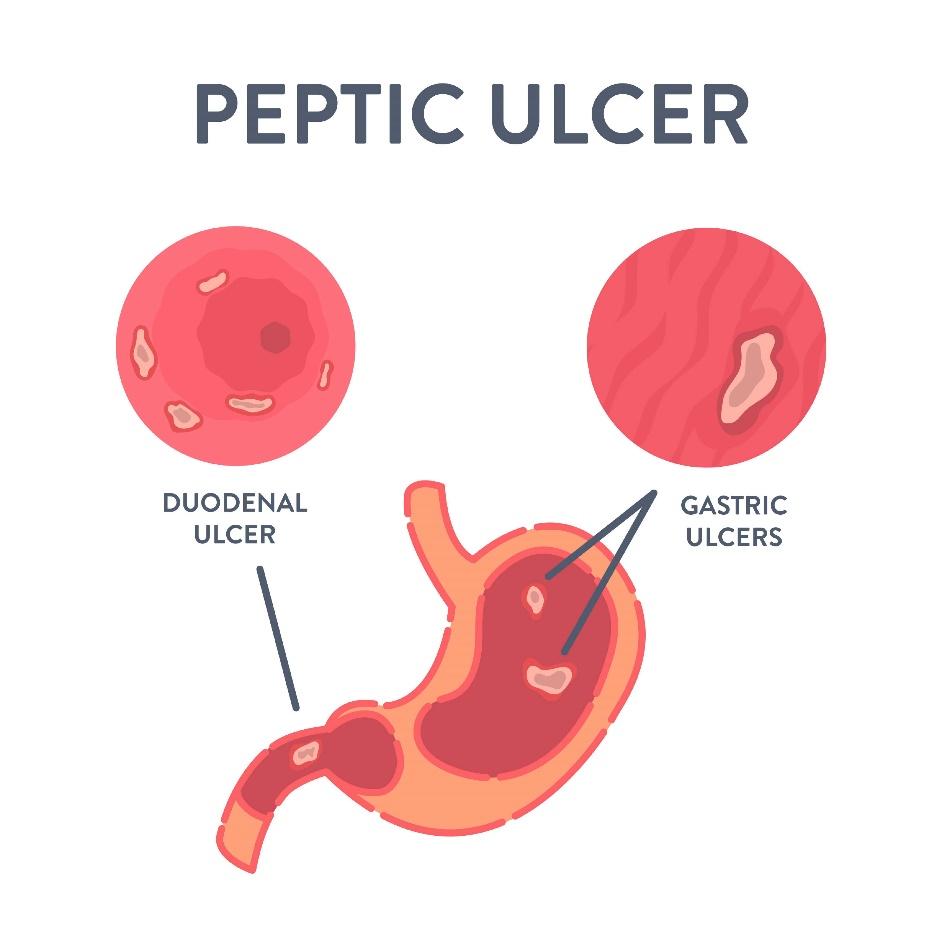- [email protected]
- +91- 8073380392
Peptic Ulcer Disease

Peptic ulcer disease is a common gastrointestinal disorder that affects millions of individuals worldwide. The primary cause of peptic ulcers is often attributed to infection with Helicobacter pylori bacteria or the long-term use of nonsteroidal anti-inflammatory drugs (NSAIDs) like aspirin or ibuprofen. Stress and certain lifestyle factors may exacerbate symptoms but are not typically direct causes of PUD.
The symptoms of peptic ulcers can vary but often include abdominal pain, which may be described as burning or gnawing and can occur anywhere from the navel up to the breastbone. Other symptoms may include bloating, nausea, vomiting, and in severe cases, gastrointestinal bleeding leading to black or bloody stools or vomiting blood.
Diagnosis of peptic ulcer disease usually involves a combination of medical history assessment, physical examination, and diagnostic tests such as endoscopy, which allows visualization of the ulcer and collection of tissue samples for biopsy. Treatment typically involves a combination of medications to reduce stomach acid production, eradicate H. pylori infection (if present), and promote healing of the ulcer.
In addition to medication, lifestyle modifications such as avoiding NSAIDs, managing stress, and making dietary changes may be recommended to alleviate symptoms and prevent recurrence. In some cases, severe ulcers that do not respond to conservative treatment may require surgical intervention to repair the ulcer or remove damaged tissue.
Benefits:
Overall, addressing peptic ulcer disease through appropriate diagnosis and treatment offers significant benefits in terms of symptom relief, prevention of complications, and long-term health maintenance.
We give the best Peptic Ulcer Disease Treatment in HSR Layout. Contact us today.
Empowering assistance, right when it matters. We’re here to lend a hand whenever you need it.

Call : +91- 8073380392
Srushti Gastro & liver Clinic 186, 165, 9th Main Rd, Sector 6, HSR Layout, Bengaluru, Karnataka 560102